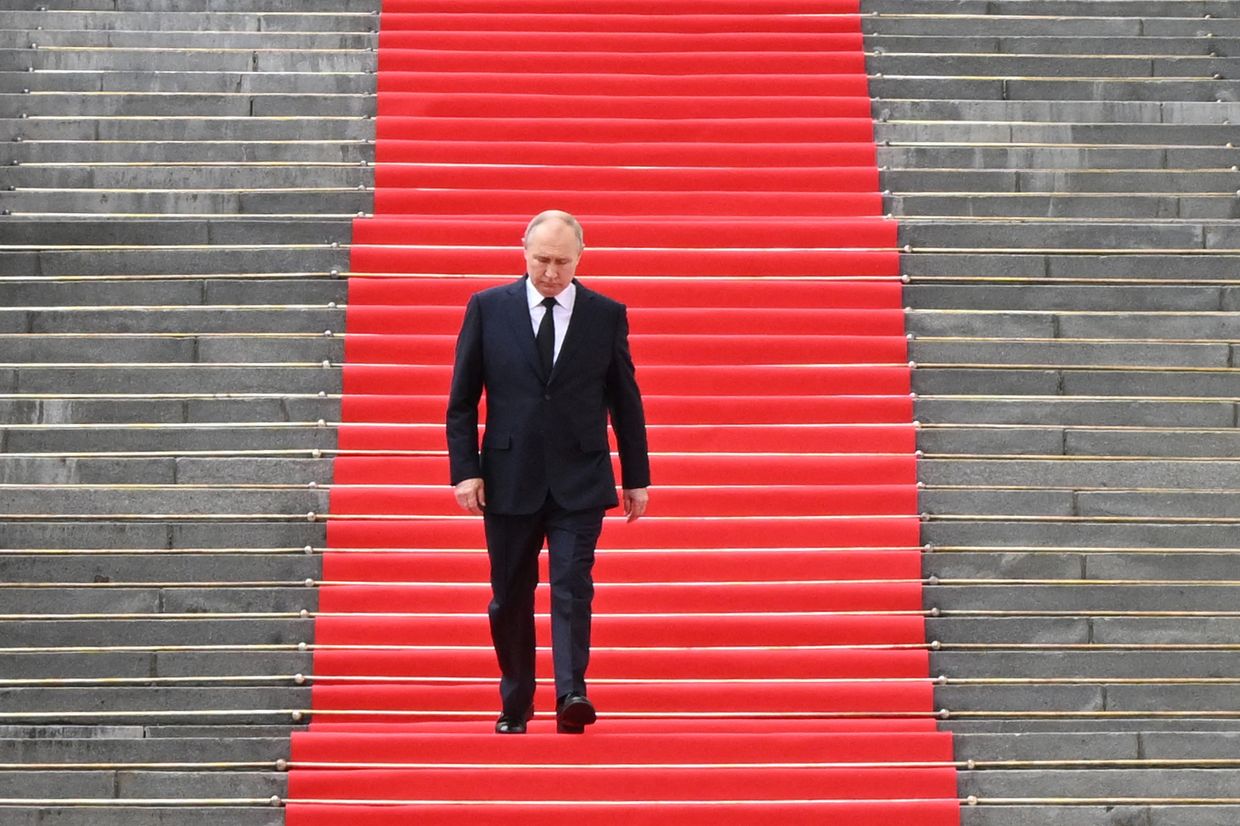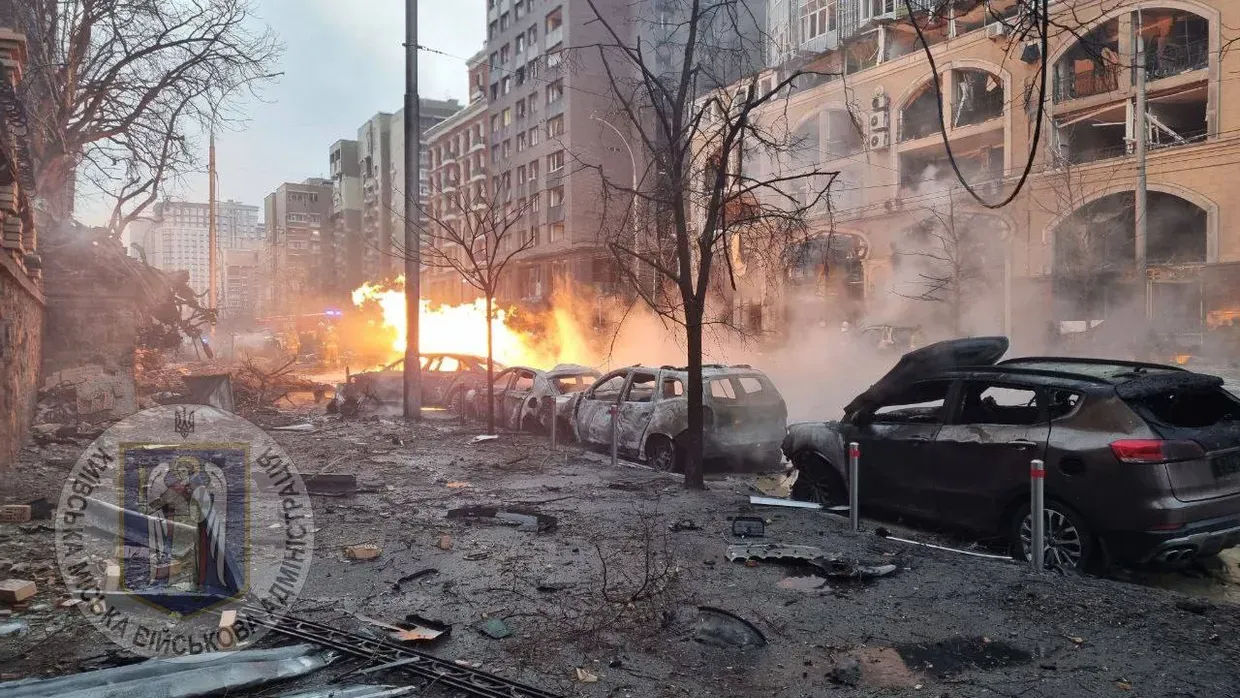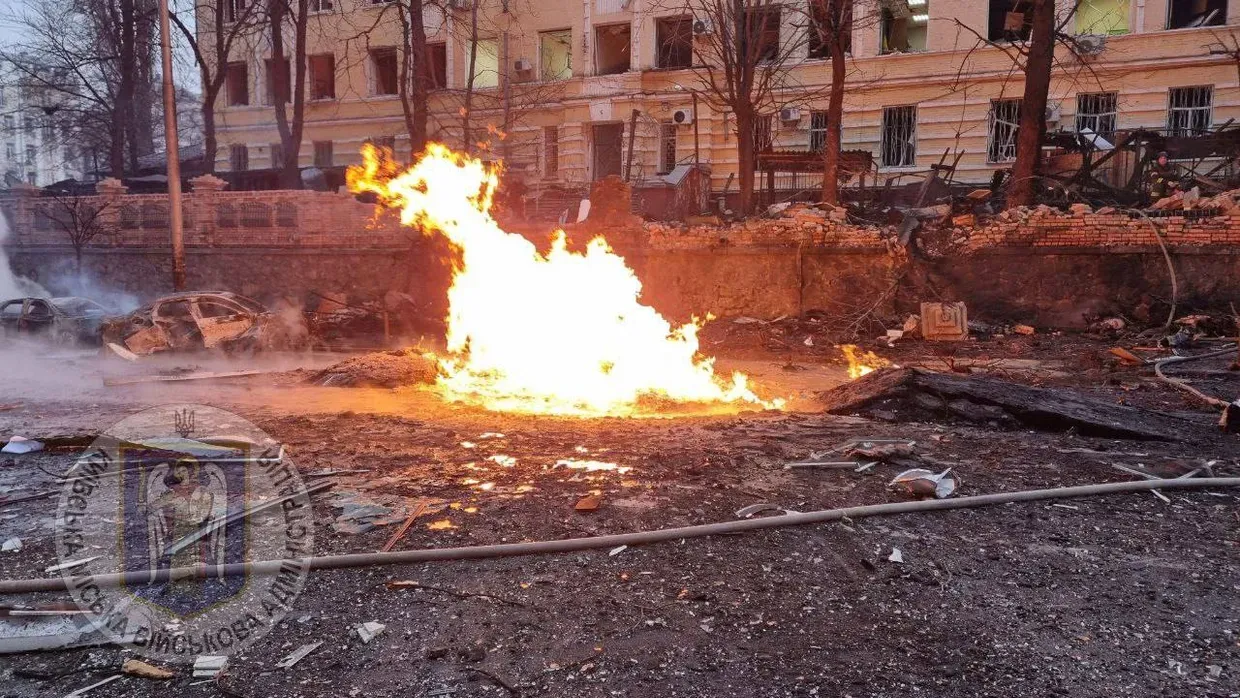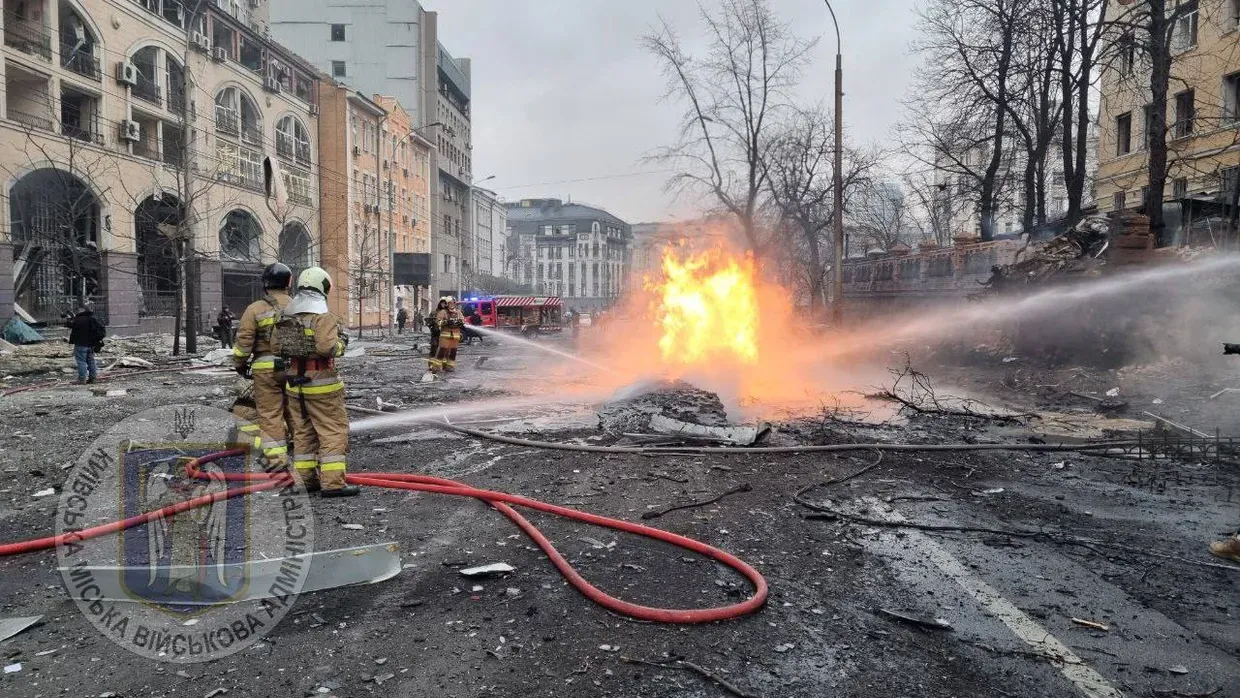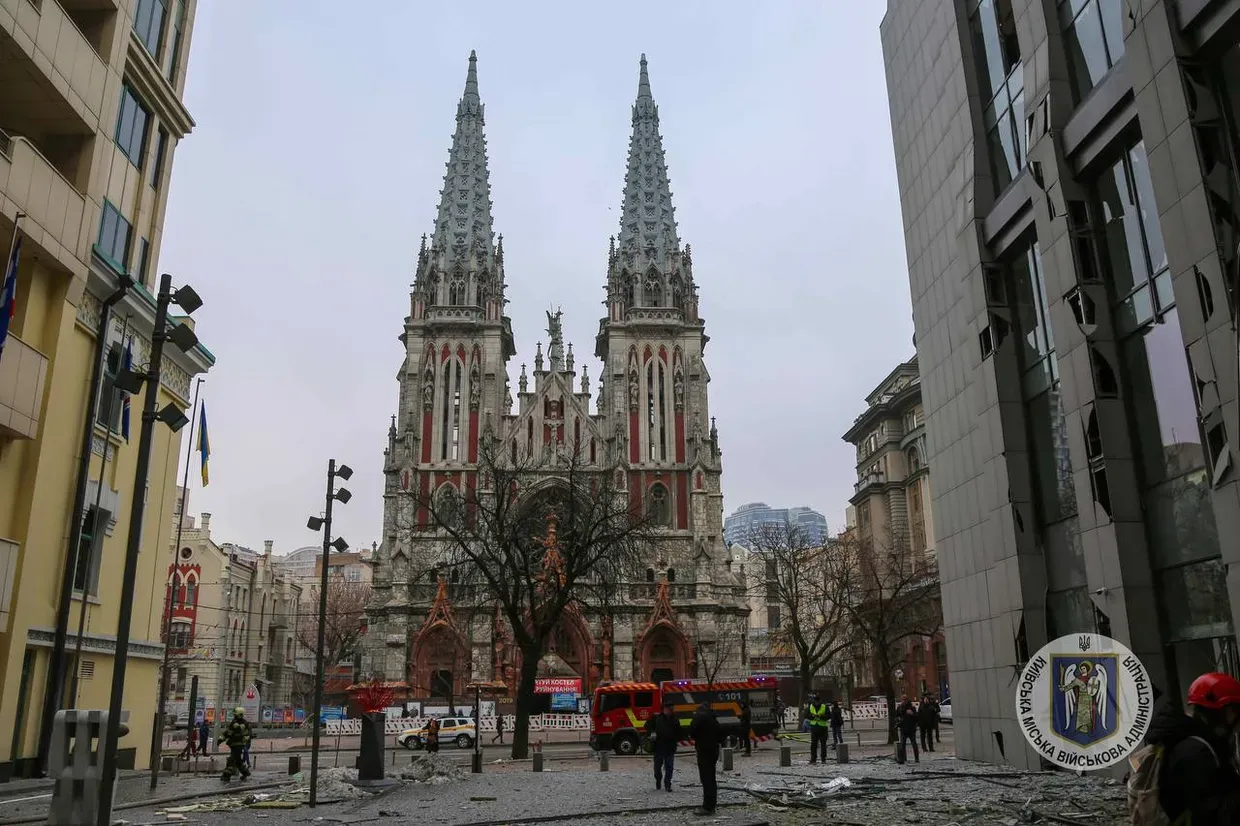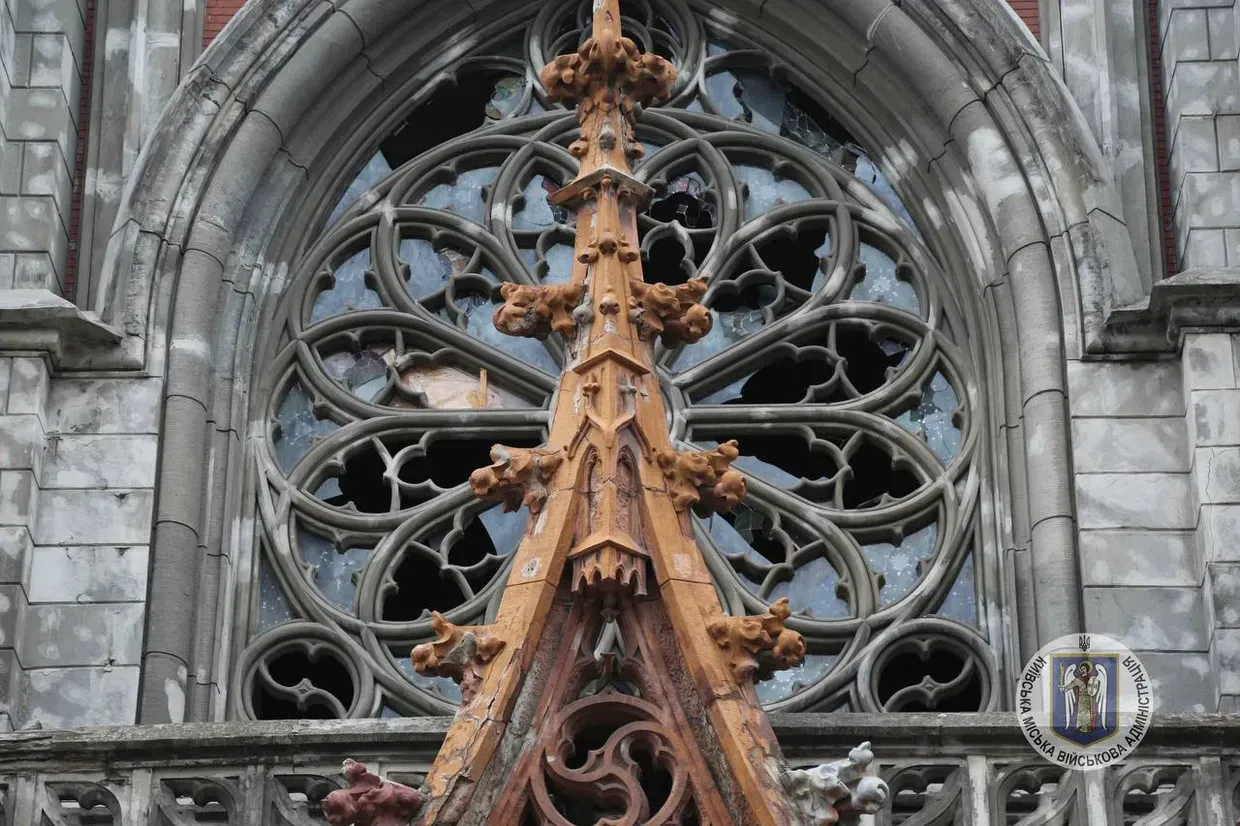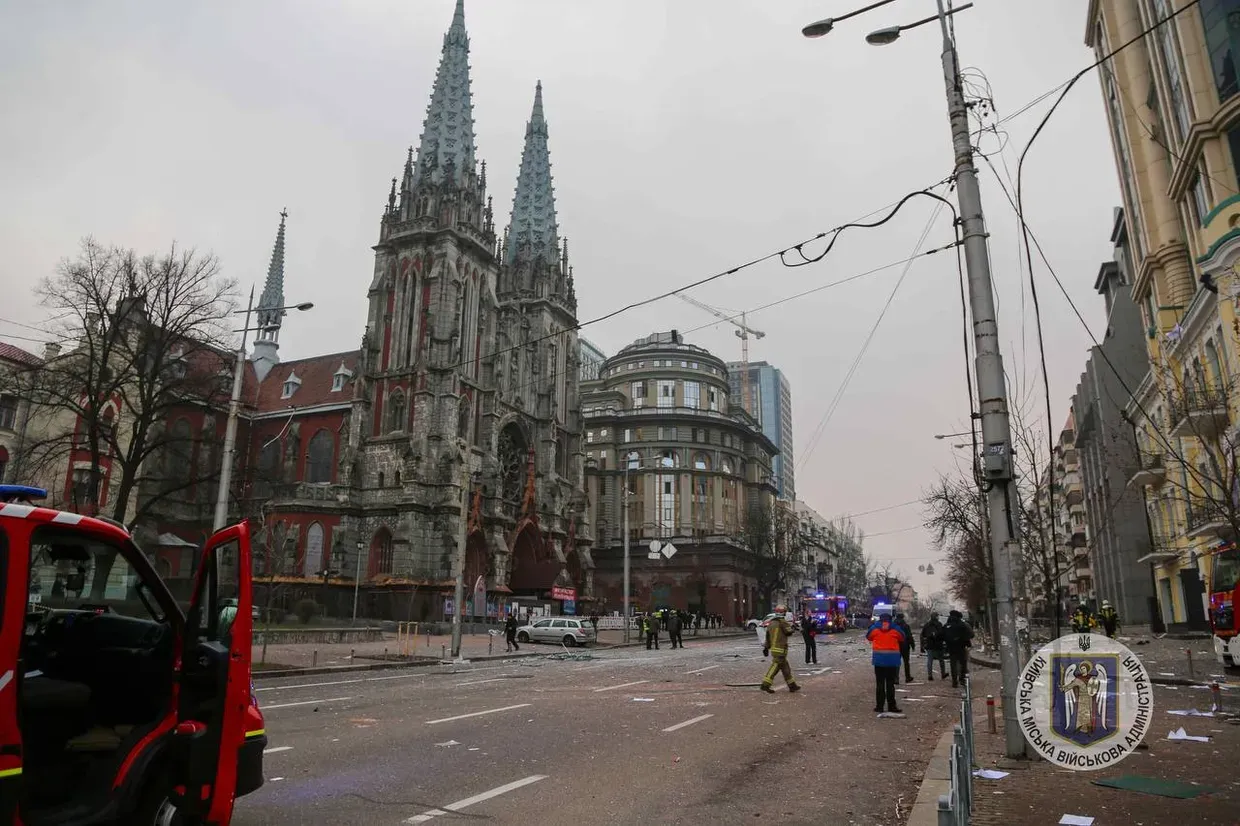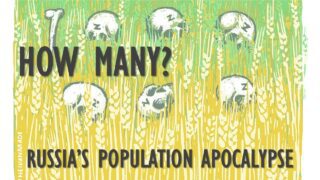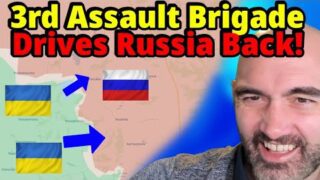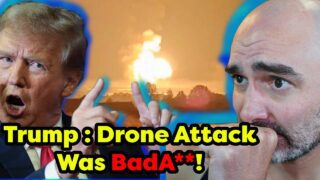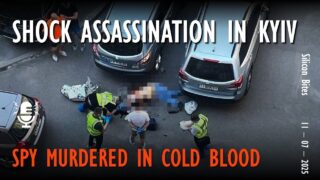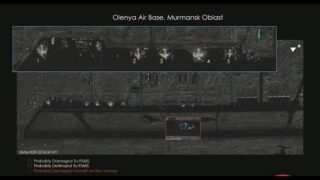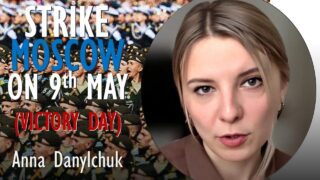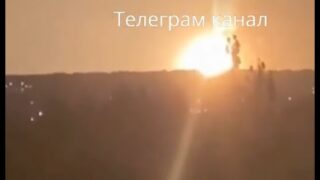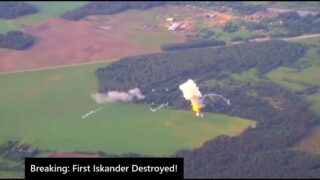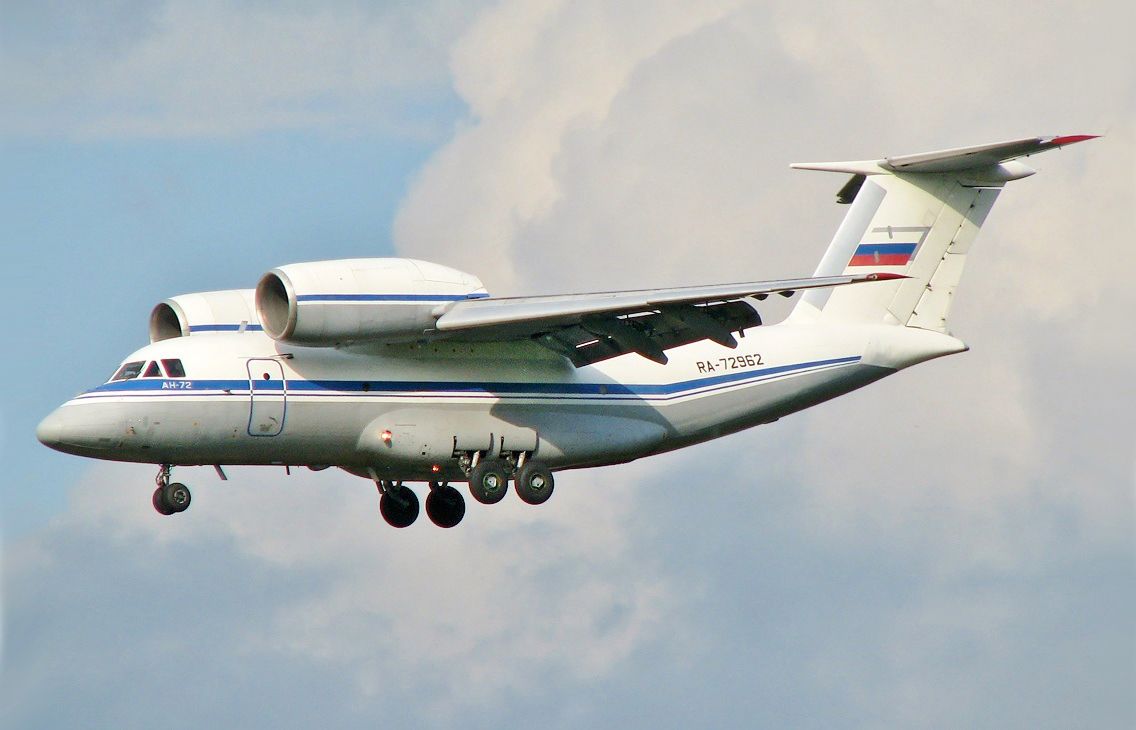
Ukraine war latest: Russian An-72 military transport plane damaged in blast near Moscow, Ukraine's intel claims
Key developments on Dec. 20:
- Russian An-72 military transport plane damaged in blast near Moscow, Ukraine's intel claims
- Fire, casualties reported in Kyiv amid Russian missile attack
- Ukraine charges Russian general with killing Reuters employee in Kramatorsk
- Russia captures 'Uspenivka pocket,' Ukraine denies reports of failed breakout
- Ukraine begins receiving first funds covered by frozen Russian assets proceeds
- Fico criticizes Zelensky over refusal to extend Russian gas transit, warns of crisis
- Russia keeps key interest rate at 21%, defying expert expectations
A power unit of a Russian An-72 military transport plane blew up at the Ostafyevo airfield in Moscow Oblast last week, Ukraine's military intelligence (HUR) reported on Dec. 20.
The Russian Navy plane's main power unit exploded on Dec. 12, the military intelligence agency said without providing details on the cause or circumstances of the explosion. The Kyiv Independent could not verify these claims.
The An-72 is a Soviet transport aircraft, developed by Antonov, Ukraine's largest aircraft manufacturing company. The plane is used mainly by the military and has an estimated price tag of around $4.5 million.
HUR shared footage of the explosion without explicitly claiming responsibility for the incident. The Ostafyevo airfield is located over 1,000 kilometers (620 miles) from Ukraine's border.
"There will be just retribution for every war crime committed against the people of Ukraine," the agency said.
Previously, Ukraine claimed responsibility for several aircraft sabotage operations inside Russia.
In July, a HUR-coordinated operation resulted in damage to three Mi-28 and Ka-226 helicopters on the territory of the Moscow-based National Center of Helicopter Construction of Mil and Kamov, a source in the agency told the Kyiv Independent at the time.
Another operation the same month reportedly led to the destruction of a Mi-8 helicopter at the Samara Kryazh military airfield in Samara Oblast, roughly 800 kilometers (500 miles) from the Ukrainian border.
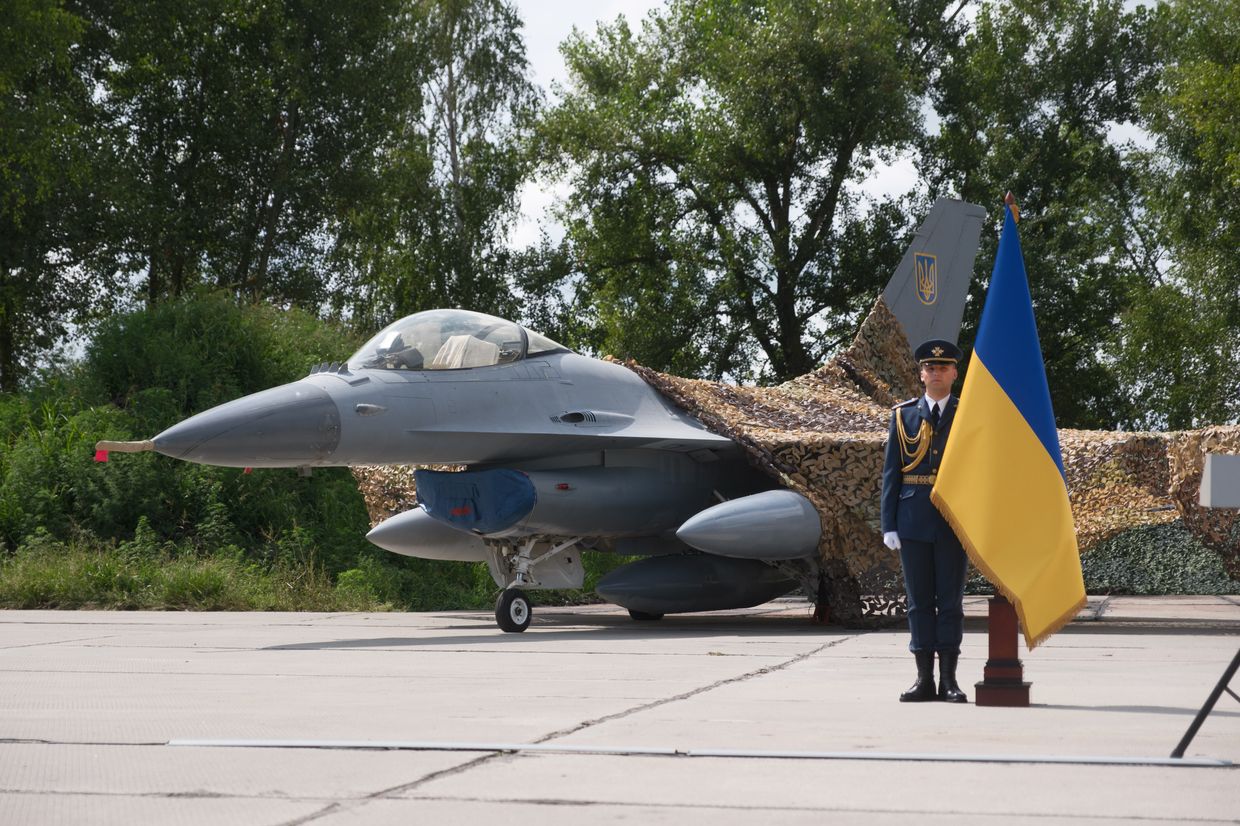

Fire, casualties reported in Kyiv amid Russian missile attack
Russia launched a series of missile attacks against Kyiv on the morning of Dec. 20, reportedly killing one person, injuring 12, and causing damage across the city.
Multiple explosions were reported in Kyiv around 7 a.m. local time, according to Kyiv Independent journalists on the ground. Kyiv Mayor Vitali Klitschko said that air defenses were operating over the city.
Russia attacked the capital with five ballistic missiles of the Iskander-M or the North Korean KN-23 model, the Air Force said. All five missiles were reportedly shot down, with debris falling in several districts of the city.
One person was killed and at least 10 injured in the Holosiivskyi district, and at least one was injured in the Shevchenkivskyi district, the State Emergency Service reported. Five people remain hospitalized as of 1 p.m. local time.
In the Holosiivskyi district, the missile wreckage damaged office buildings, residential buildings, a gas pipe, and five cars. A fire broke out on the roof of one of the office buildings, and the 15th floor was damaged, possibly trapping people inside, authorities said.
Sixteen medical institutions, 17 schools, 13 kindergartens, and 630 residential buildings in the district were left without heating as a result of damaged infrastructure.
Fires were also reported at non-residential buildings in the Solomianskyi and Shevchenkivskyi districts of Kyiv. Initial reports about damage in the Dnipro district have not been confirmed.
A blast wave damaged the stained glass windows of the St. Nicholas Roman Catholic Cathedral in the Pechersk district, the Ukraine International Institute of Restoration said. Footage shared by journalist Yan Dobronosov shows damage at an office building across the street.
A large-scale fire also broke out in a warehouse in the Boryspil district of Kyiv Oblast, covering 15,000 square meters, the State Emergency Service reported. The fire had been contained as of 4:05 a.m. local time.
In recent months, Russia has continued to intensify its drone and missile attacks targeting different regions of Ukraine.
On Dec. 19, Russian President Vladimir Putin proposed to "experiment" on Western air defenses by launching an Oreshnik intermediate-range ballistic missile (IRBM) at Kyiv.
Ukrainian President Volodymyr Zelensky has repeatedly called on Western allies to provide more air defenses to the embattled country. On Dec. 18, during a visit to Brussels, Zelensky called for allies to provide an additional 19 air defense systems to protect against Russian strikes on critical infrastructure.
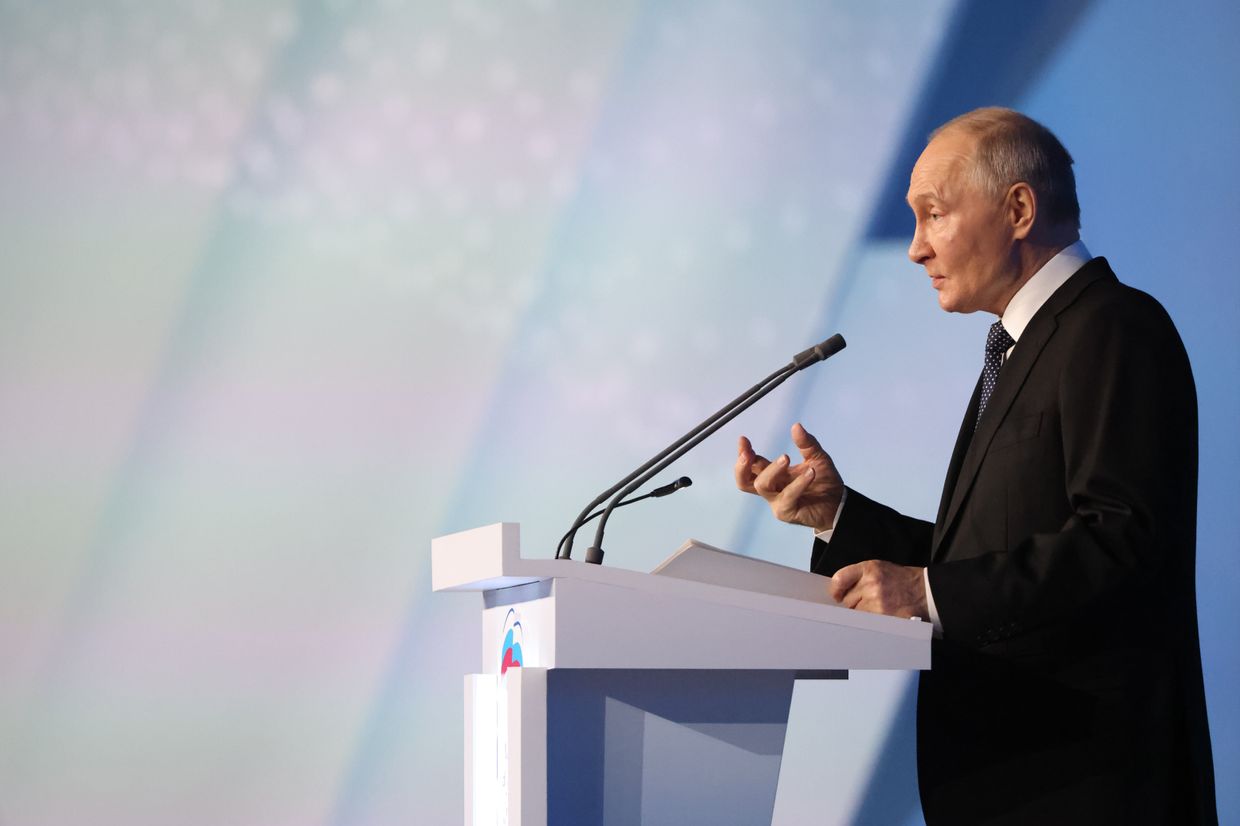

Ukraine charges Russian general with killing Reuters employee in Kramatorsk
The Security Service of Ukraine (SBU) announced on Dec. 20 that it had gathered evidence against Colonel General Alexei Kim, the Russian officer allegedly responsible for the Aug. 24 missile attack on the Sapfir Hotel in Kramatorsk, Donetsk Oblast.
The strike killed Ryan Evans, a British security adviser for Reuters, and injured six others, including two Reuters journalists.
Kim, a deputy chief of Russia's General Staff, signed the directive and issued the combat order for the Iskander-M ballistic missile strike, according to the SBU.
The SBU said that Kim directed one of his missile units to target the hotel despite it being occupied solely by civilians.
SBU investigators charged Kim in absentia under Ukraine's Criminal Code with waging a war of aggression and violating the laws and customs of war.
The charges align with Ukraine's broader efforts to hold Russian military leaders accountable for targeting civilian infrastructure and committing war crimes.
This development follows the Dec. 17 assassination of Lieutenant General Igor Kirillov, head of Russia's radiation, chemical, and biological defense forces, in an alleged SBU operation in Moscow.
Ukrainian prosecutors had previously charged Kirillov with deploying banned chemical weapons in the conflict.
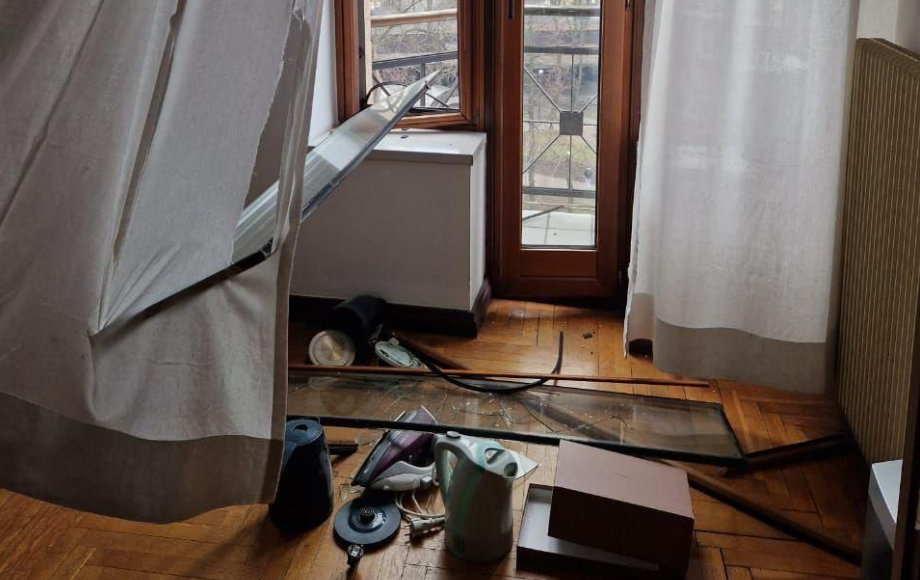

Russia captures 'Uspenivka pocket,' Ukraine denies reports of failed breakout
Ukrainian forces withdrew from the area of the Uspenivka and Trudove settlements in Donetsk Oblast after "heavy defensive battles," the Khortytsia group of forces said on Dec. 20.
The statement came in reaction to the DeepState monitoring group claiming that some troops did not manage to pull back after Russia captured the two settlements, completing the capture of the so-called Uspenivka pocket.
Russia's Defense Ministry announced the capture of Uspenivka on Dec. 20. Analysts have been long warning that the Russian advance threatens to encircle Ukrainian troops in the area.
The sector lies roughly 8 kilometers (5 miles) south of the embattled front-line town of Kurakhove.
"Commander-in-Chief (Oleksandr Syrskyi) decided to withdraw Defense Forces units from the said area to avoid encirclement," the Khortytsia group of forces said, refuting claims about stranded soldiers.
"The units, which have been fighting heavy defensive battles against a superior force for a long time, carried out necessary maneuvers to avoid encirclement and continue performing tasks on the Kurakhove-Konstantynopolske axis."
According to DeepState, Russia is regrouping in the newly captured area and attacking in the direction of the Shevchenko-Andriivka section, threatening to create a new pocket. Russian forces are now focusing their efforts on the nearby town of Andriivka.
The Kyiv Independent could not verify the claims.
Throughout the autumn, Russian forces have made operational gains in southern Donetsk Oblast, particularly near Toretsk, Chasiv Yar, and Kupiansk, while advancing on Russian soil in Kursk Oblast.
Syrskyi said on Dec. 19 that Russian forces are carrying out simultaneous attacks along the front line, claiming that "Ukrainian defense forces did not allow Russian forces to breach the defense and achieve operational success in any direction."
Ukraine is increasingly on the back foot of the war as its resources grow thin, and the prospects of vitally important Western aid remain uncertain following the U.S. election victory of Donald Trump.


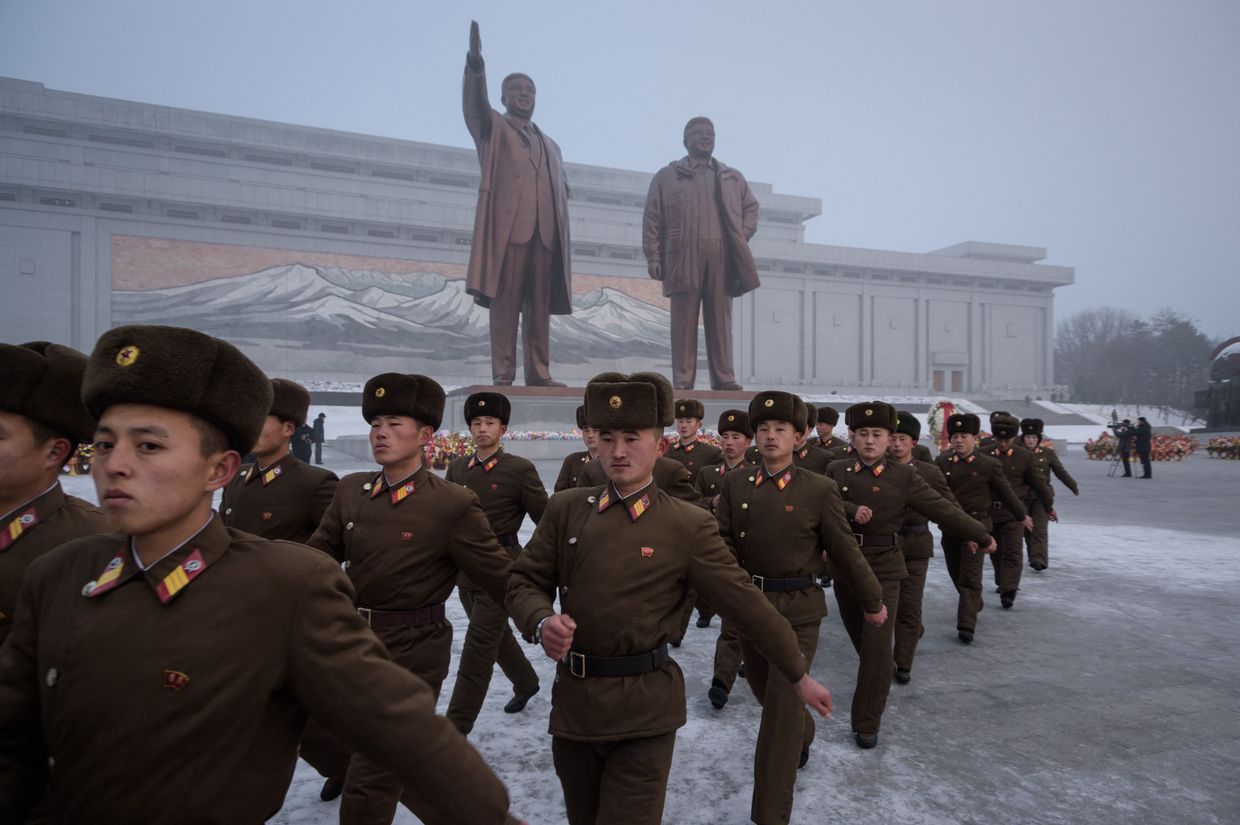

Ukraine begins receiving first funds covered by proceeds from Russian assets
Ukraine is already receiving U.S. funds under the framework of the G7's $50 billion loan covered by profits from frozen Russian assets, Prime Minister Denys Shmyhal said on Dec 20.
The World Bank's Board of Directors on Dec. 18 approved $2.05 billion in Development Policy Operation (DPO) grants, which is part of the U.S.'s $20 billion contribution to the G7 loan.
The DPO funds are co-financed by two sources: $1 billion from the Facilitation of Resources to Invest in Strengthening Ukraine Financial Intermediary Fund (F.O.R.T.I.S. Ukraine FIF) and $1.05 billion from the Advancing Needed Credit Enhancement (ADVANCE) Ukraine Trust Fund, supported by the U.K. and Japan.
"We are grateful to our partners for their support on the path of economic development and reconstruction," Shmyhal said on Telegram.
The DPO funds will focus on Ukraine's growth potential, supporting the railway sector, banking, and renewable energy generation, the World Bank said. Funding will also support efforts to increase domestic revenues.
The EU said it would begin paying its portion of the G7 loan — 18.1 billion euros ($18.8 billion) — in January.
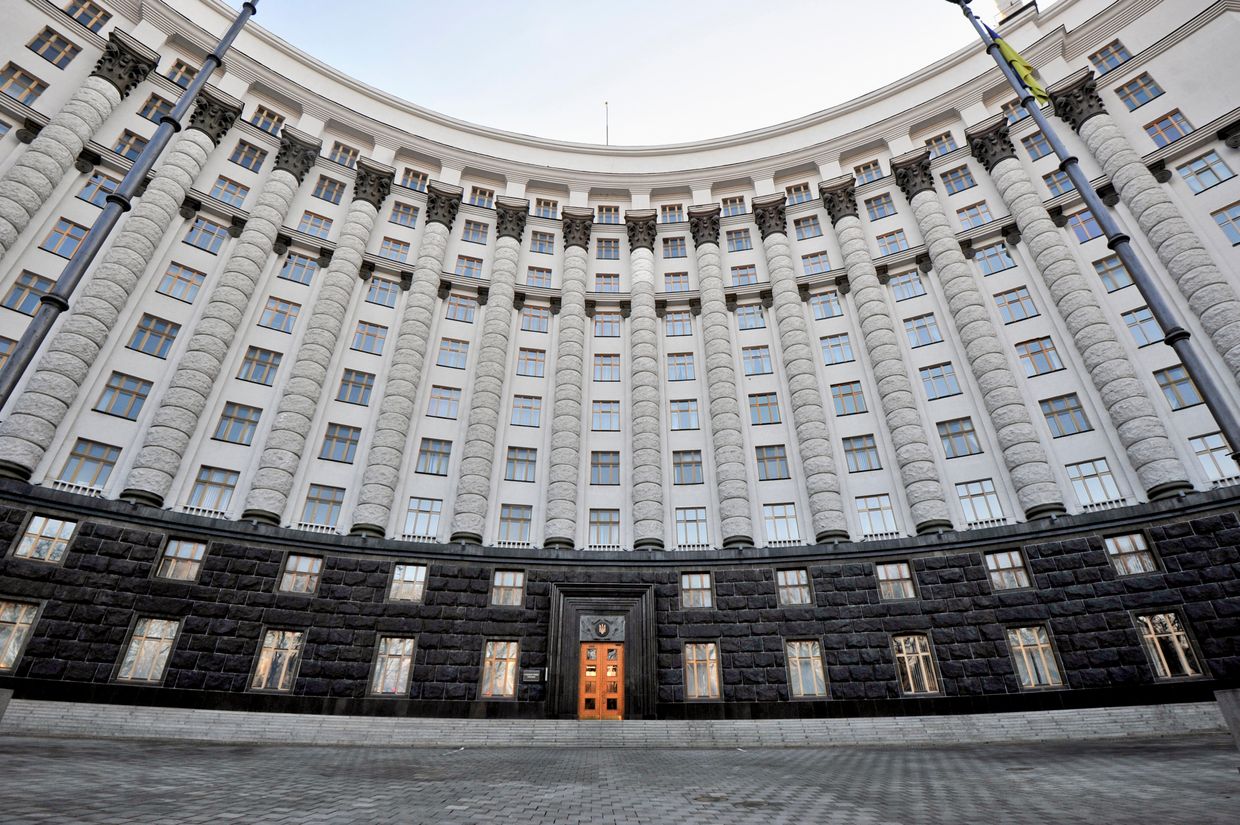

Fico criticizes Zelensky over refusal to extend Russian gas transit, warns of crisis
Slovak Prime Minister Robert Fico warned of a looming gas crisis on Dec. 20 as Ukraine maintained its refusal to extend the transit agreement for Russian gas, set to expire on Dec. 31, Reuters reported.
President Volodymyr Zelensky reaffirmed the refusal during a press conference on Dec. 19, saying that Kyiv would not enable Moscow to earn additional revenue while continuing its war.
At a European Union summit, Fico criticized Ukraine’s position, saying, "We are demonstrably facing a gas crisis thanks to President Zelensky."
He also suggested that Bratislava might consider "reciprocal measures" if Russian gas transit through Ukraine to Slovakia is halted.
Slovakia has a long-term contract with Russia's state-owned energy giant Gazprom and estimates alternative arrangements could cost an additional €220 million ($228.73 million) in transit fees.
The issue highlights ongoing dependence on Russian gas in several EU members, including Slovakia, Hungary, and Austria, despite efforts to diversify energy sources following Russia's full-scale invasion.
Earlier this year, the EU implemented its first sanctions targeting the Russian gas industry, focusing on liquefied natural gas (LNG).
Russian President Vladimir Putin also addressed the matter during his annual press conference on Dec. 19, confirming the end of the contract and expressing confidence in Gazprom's resilience.
“This contract will no longer exist. Everything is clear. We will survive, Gazprom will survive,” Putin said.
Slovakia, which has a long-term contract with Russian oil giant Gazprom has been trying to keep receiving gas through Ukraine, saying buying elsewhere would cost 220 million euros ($228.73 million) more in transit expenses.
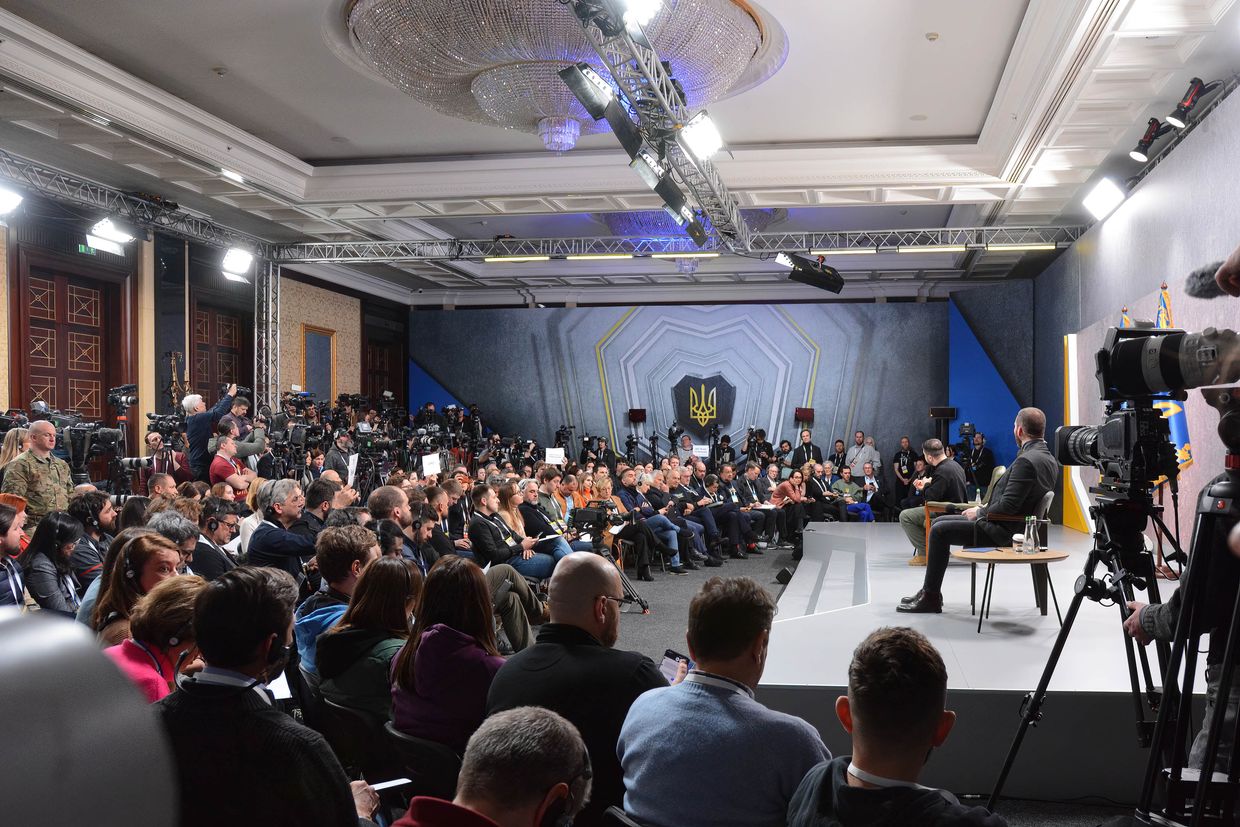

Russia keeps key interest rate at 21%, defying expert expectations
Russia's Central Bank decided on Dec. 20 to keep its benchmark interest rate steady at 21%, contrary to expert expectations of an increase, Russia’s state-owned TASS news agency reported.
To rein in accelerating inflation fueled by war spending, Russia's Central Bank has been raising its interest rate from 7.5% in July 2023 to the current 21% – the highest level since the early 2000s.
The tight monetary policy of Elvira Nabiullina, the Central Bank's chief, has drawn criticism from businesses in Russia's military-industrial complex. On Dec. 19, Russian President Vladimir Putin also mentioned the problem, saying that some experts believe that the central bank should have started using tools other than rate hikes to fight inflation.
Most analysts, including those polled by Russian media outlet RBC, anticipated a hike of 200 basis points to 23%.
Ahead of the decision, major Russian banks raised savings deposit yields to 24-25% per annum, reflecting expectations of tighter monetary policy.
The Central Bank said that, based on inflation and credit trends, the feasibility of raising the rate further would be assessed at its next meeting.
Nabiullina has been involved in a conflict over rate hikes with Sergei Chemezov, the influential CEO of the state-owned defense giant Rostec.
"If we continue working this way, most enterprises will essentially go bankrupt," Chemezov said in October, commenting on increases in the Central Bank's rate.
Former economic advisor and opposition politician Vladimir Milov told the Kyiv Independent in November that both sides have valid concerns.
"Chemezov is right that businesses will have to shut down at such a (high interest) rate," he told the Kyiv Independent, "Nabiullina is right that the rate cannot be cut because in that case there will be hyperinflation like in Turkey."
He continued that "there is only one way out — finish the war and withdraw Russian troops" from Ukraine.
The balance between controlling inflation and maintaining economic stability remains a critical challenge for Russia’s Central Bank, as the war economy continues to strain the nation's financial system.
